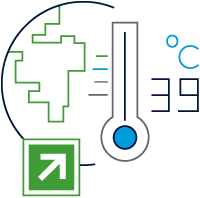Authors


When are self-education expenses otherwise deductible?
On 21 February 2024, the Australian Taxation Office (ATO) released a final taxation ruling, Taxation Ruling TR 2024/3, to provide updated guidance and further clarity with regards to determining an individual’s eligibility to claim a deduction on their income tax for self-education expenses they have incurred.
The new ruling effectively replaces the previous ATO rulings, TR 92/8 and TR 98/9, which have now been withdrawn.
What is self-education?
For the purposes of TR 2024/3, self-education includes:
- Courses undertaken at an educational institution (whether leading to a formal qualification or not);

- Courses provided by a professional or industry organisation;
- Attendance at work-related conferences or seminars; or
- Self-paced learning and study tours (whether within Australia or overseas).
Principles
TR 2024/3 sets out the principles on the deductibility of self-education expenses under section 8-1 of the Income Tax Assessment Act 1997 (ITAA 1997).
To be deductible under section 8-1, expenditure must be able to be characterised as having been incurred in gaining or producing assessable income. Self-education expenses are incurred in gaining or producing assessable income if either or both of the following apply:
- Principle 1: The individual’s income-earning activities are based on the exercise of skill or some specific knowledge and the self-education enables them to maintain or improve that skill or knowledge.
- Principle 2: The self-education objectively leads to, or is likely to lead to, an increase in an individual’s income from their current income-earning activities in the future.
Principle 1: Income-earning activities based on skill or specific knowledge.
If an individual’s income-earning activities are based on the exercise of a skill or specific knowledge, the self-education expenses undertaken to maintain that skill or specific knowledge will be deductible.
The Commissioner notes that the following should be considered to determine whether self-education was incurred to maintain or improve knowledge or skills:
- If the self-education is too general, there is no adequate connection between the self-education expense and the income-earning activity, thus it is unlikely for the expense to be deductible.
- Self-education that results in the individual being better equipped to perform their current income-earning activities is deductible where the self-education has the requisite connection to their income earning activities at the time the expenditure is incurred.
- Obtaining a higher degree qualification within an individual’s profession or industry is deductible where the self-education has the requisite connection to their income-earning activities at the time.
- Expenditure on overseas study tours or trips have been found to be deductible in limited circumstances. Notable factors to demonstrate such a connection include:
- The individual devoting all of their time while overseas to the advancement of their knowledge relevant to their work;
- The tour or trip is undertaken whilst the individual is employed in the relevant role;
- The tour or trip was not recreational or general in nature, but rather showed a particular special circumstance to differentiate it from being recreational;
- The tour or trip was requested or supported by the employer; and
- Expenses incurred on improving skills and specific knowledge are not of a capital nature – they do not amount to the acquisition of something of an enduring nature.
Principle 2: Leads to, or is likely to lead to, an increase in your income.
If the self-education undertaken will objectively lead to, or likely to lead to, an increase in income from the individual’s current income-earning activities, the expenses will be deductible.
The Commissioner notes that the following should be considered to determine whether self-education was incurred where it leads to, or likely to lead to, an increase in income from an individual’s current income-earning activities:
- The increase in income from the individual’s current income-earning activities is clearly and proximately linked with the self-education.
- There is a real opportunity for promotion resulting from the self-education.
- The self-education leads to or is likely to lead to a bonus or move to a higher pay grade on completion of the self-education, where the individual remains in their current role doing the same or very similar activities.
- Self-education is something that leads to or is likely to lead to a promotion to a position which is not materially different from the individual’s current position.
- So far as overall motive or purpose is material in the individual’s circumstances, the individual’s advancement of employment grade and salary, must form a real and substantial element in the combination of their motives for undertaking the self-education.
It is important to note that no factor on its own will necessarily determine whether self-education leads to, or is likely to lead to, an increase in an individual’s income for their current income-earning activities.
Exclusions
TR 2024/3 also outlines that self-education expenses are not incurred in gaining or producing an individual’s assessable income if any of the following exclusions apply:
- Exclusion 1: An individual cannot deduct self-education expenses if the education is undertaken or designed to enable the individual to get employment, obtain new employment, or open up a new income-earning activity, whether in business or in their current employment.
- Exclusion 2: A deduction is not available if, at the time an individual incurs the expense, the individual is not undertaking the income-earning activities to derive assessable income, either by employment, carrying on a business or by other means.
Apportionment
Self-education expenses incurred should be apportioned if they were not entirely in relation to gaining or producing assessable income. Self-education expenses should be apportioned where:
- The self-education expense has distinct and severable parts, and some are for an income-producing purpose and others are for some other purpose; and
- Where the self-education expense is a single outlay that serves both an income-earning purpose and some other purpose, the expense must be apportioned on a fair and reasonable basis.
Commonwealth-supported place (CSP)
Where it can be determined that self-education expenses should be deductible under the rules set out in TR 2024/3, employers should then consider whether the self-education undertaken is through a Commonwealth-supported-place (CSP).
CSPs are courses which receive government funding, i.e. where a proportion of the costs for students who attend university are subsidised. In a CSP, the total cost of higher education is split between two parts:
Subsidised amount: the Australian Government pays a subsidy for a portion of the costs directly to the higher education provider.
Student contribution amount: The student pays the remaining amount, which must be paid by the census date either upfront or using a HECS-HELP loan (if eligible).
It is important for employers to note that CSPs are non-deductible, and the full value is subject to FBT and considered a reportable fringe benefit for Reportable Fringe Benefits Amount (RFBA) purposes, if paid by the employer.
Courses that are Commonwealth-supported-places include:
- Higher Education Loan Program (HELP) debt
- VET Student Loan
- Student Start-up Loans
- Trade Support Loans
- Overseas debtors repayment levy
- Student Financial Supplement Scheme (SFSS)
It is important to note that undergraduate courses, even where paid in full by the relevant due date, will likely constitute a CSP and thus, would be considered non-deductible. Post-graduate courses are trickier to determine whether they are a CSP and further investigation may be required.
The “otherwise deductible” rule and FBT
The views expressed in TR 2024/3 will also be relevant to determine whether any item of expenditure that is reimbursed by an employer is subject to fringe benefits tax (FBT) under the “otherwise deductible rule”.
The otherwise deductible rule stipulates that if an employee would have been eligible to claim a deduction for self-education expenses had they paid for them out-of-pocket, the taxable value of the fringe benefit that the employer provides can be reduced accordingly.
However, in order to benefit from the otherwise deductible rule, the employer should ensure the appropriate conditions are met, including whether any appropriate declarations are to be collected. Thus, in reference to reimbursements or provision of self-education expenses or further training, employers should consider whether the education would be deductible in the hands of the employee had they incurred the expense themselves. This new ruling gives employers the pre-requisite conditions to consider application in their own FBT return.
Considerations for employers going forward
The updated guidelines regarding self-education expenses could impact employers and their policies significantly. Employers who provide reimbursements for self-education expenses should closely review these new guidelines and reassess their existing policies around self-education expenses, ensuring that the benefits they offer align with the ruling’s principles. Doing so not only offers an opportunity for employers to reduce their FBT liability, but also enhances capacity to provide significant benefits that support the professional development of employees.
Employers should also consider investing in systems which can allow more effective collation of information and record keeping in relation to expense reimbursements. Implementing such systems will give employers better tools to ensure their FBT preparation is as optimised as possible
FOR MORE INFORMATION
For more information on the deductibility of self-education expenses or how you can enhance your expense reimbursement processes, please contact Rick Kimberley or Gina Nedeljkovic
Important notice
This document does not constitute an offer to purchase any shares or assets in the company described. The information contained in this document has been provided to RSM Corporate Australia Pty Ltd by the Company and no enquiries as to the accuracy of the information have been made. This document contains certain statements and estimates with respect to the business of the Company which have been based on the assumptions of management of the Company. No representation is made as to the accuracy of such statements or estimates.






